Asia-Pacific
International Relations > Regions
The Asia-Pacific is one of the world's most dynamic macro-regions; and its relevance will likely increase in the future.
It holds a significant share of the world's GDP, trade volume, and population; and it is home of huge developed economies like Japan, China and South Korea as well as of fast-growing ones such as Vietnam or Indonesia.
But the Asia-Pacific is also home of regional rivalries and strategic challenges that threaten international stability.
The United States maintains a strong military and political presence in the region; and this causes tensions with PRC, its main competitor in both regional and global terms.
The rise of China is not only a matter of extraordinary economic growth, since it is accompanied by a military buildup and by a more assertive international stance. However, its rise is made more difficult by a series of challenges of demographic, economic, and political nature; and how China will handle them will determine its role in the upcoming decades.
Beijing is also involved in the main territorial disputes in the region, namely the one in the South China Sea with several South-East Asian states, the one over the Senkaku / Diaoyu islands with Japan, without forgetting the particular and decade-long diatribe about the sovereigny over Taiwan; and all such situations have the potential to spark a conflict that may easily degenerate.
Another longstanding probelm for regional stability is the situation in the Korean peninsula. Reunification remains a far-away objective, and the North's nuclear programme is causing concern among its neighbors and the rest of the international community; and this may also result in an all-out war with dramatic consequences.
On its part, South-East Asia is home to many emerging economies. It is also the stage of a regional integration experiment (ASEAN), but its success remains limited. In addition, it is an area marked by ethnic and religious tensions; and it is a battleground of great power competition since it connects the Pacific and Indian Oceans.
The region is also witnessing a rise in nationalist discourse, which is a dangerous mix when combined with the aforementioned disputes and a generalized military build-up.
In short, the Asia-Pacific will have a central importance on international affairs in the future, but there are various factors at play that may destabilize it with dangerous consequences.
Will Pakistan's Oil Discoveries Change its Geopolitical Fortunes?
 The Pakistani authorities have recently announced that a considerable oil & gas field has been found in the seabed off Karachi’s coast.
The Pakistani authorities have recently announced that a considerable oil & gas field has been found in the seabed off Karachi’s coast. While exploration surveys to assess the real scope of the untapped reserves are still ongoing, the first findings suggest that these deposits could radically transform Pakistan’s role in the energy market.
But beyond the economic dimension, what will be the international implications of the discovery?
To learn more about this topic, have a look to my contribution to KJ Vids by clicking on this link.
Image taken from: rappler.com (modified)
EU Arm Sales to Asia
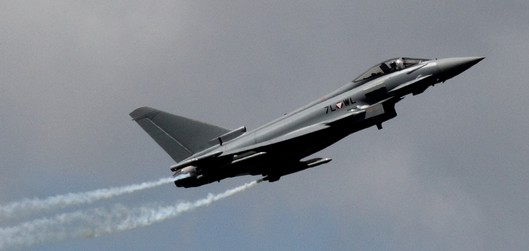 The European Union is often considered a minor actor in security affairs.
The European Union is often considered a minor actor in security affairs.This is especially true in Asia, a region of primary economic importance for the Union but where it plays a very limited role.
However, this is actually greater than it may seem: several European states are important arms suppliers for Asian countries; but this is mainly the result of their own initiatives rather than of a unified and coherent EU-level strategy.
Still, Europeans are contributing to region’s evolving security dynamics, and this will inevitably have political repercussions.
Read more about this topic in my article (only for Geopolitical Monitor subscribers).
Photo credits: Max Pfandls, Flickr, modified
The Rise of Indonesia
 Indonesia is the world’s largest Muslim country by population and is one of South-East Asia’s most dynamic economies.
Indonesia is the world’s largest Muslim country by population and is one of South-East Asia’s most dynamic economies.Located at the juncture between the Pacific and Indian Oceans, it has the potential to become a leading regional power.
However, its location is also a source of considerable challenges that Indonesia will have to manage attentively in the coming years.
Watch this video by KJ Vids based on my analysis to know more about Indonesia's geopolitics.
Vietnam-China Relations & the South China Sea
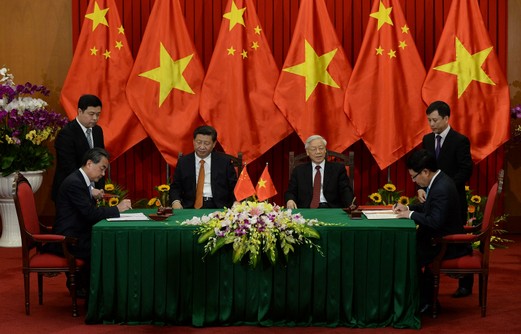 Vietnam is modernising its military and fostering ties with the US and other countries.
Vietnam is modernising its military and fostering ties with the US and other countries. In a broader context of US-China competition, it seems that Vietnam will play an increasingly important role; but at the same time, this will put it in a collision course with the China, with potentially detrimental consequences for international security and for the regional stability of an area marked by territorial disputes.
Only time will tell what will happen, but it seems that Sino-Vietnamese relations will follow a downgrading course in the coming years.
Photo credit: neweurope.eu
Will Korea Ever Reunify?
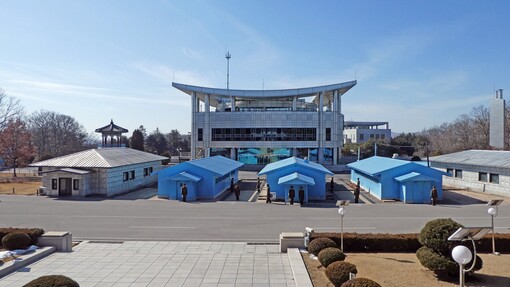 Since 1953, the Korean peninsula is divided by a frozen conflict that still awaits a definitive settlement.
Since 1953, the Korean peninsula is divided by a frozen conflict that still awaits a definitive settlement. The recent developments as the signs of détente between North and South Korea or the meeting between the former’s leader Kim Jong Un and US President Donald Trump leave some hope over a peaceful resolution of the Korean issue.
But will it actually be the case?
Probably not, since the regional geopolitical situation plays against this outcome.
The Geopolitical Impact of Climate Change in Vietnam
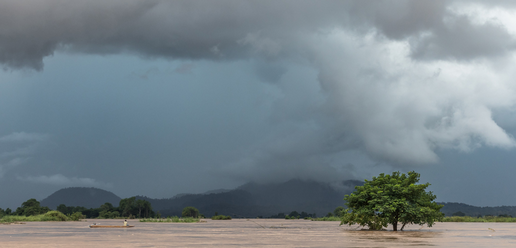 Climate change is not only an environmental matter. It also has major security implications. In this article I examine this issue by focusing on Vietnam's case.
Climate change is not only an environmental matter. It also has major security implications. In this article I examine this issue by focusing on Vietnam's case.Vietnam is among the countries to be more affected by its effect; and in the coming years it will suffer more and more from phenomena like rising sea level, extreme weather and floods. Apart the already considerable environmental and economic problems that this will bring, there are also notable humanitarian and political consequences. The deterioration of living conditions may lead to a migration crisis and delegitimize the rule of the CPV, thus bringing political instability.
Combined with the overexploitation of maritime resources, this could also cause a surge in piracy in the contested waters of the South China Sea, an essential seaway for international trade; and could provide China a justification for extending its (military) presence in the area.
Beyond Economics: The Political Risks of a US-China Trade War
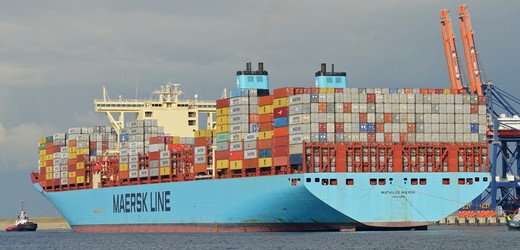
The prospect of a global-scale trade war initiated by the Trump administration against the EU and especially China has sparked an intense debate. But while most analysts and politicians focus on the economic consequences this could have, fewer have considered the potential political fallout.
In the article on I examine this aspect by applying a theoretical model presented by M. Sahlins in his book Stone Age Economics. Trade is not only about exchanging goods, it's also a social activity that can be assimilated to one of the three forms of reciprocity that Sahlins identifies, namely the one he defines as balanced reciprocity: an impersonal yet peaceful exchange. But if states start clashing over trade, there is a risk that they will shift towards negative reciprocity, whose characteristic activity is war.
Photo credit: Flickr, modified
Geopolitical Realities Threaten to Derail Trump-Kim Summit
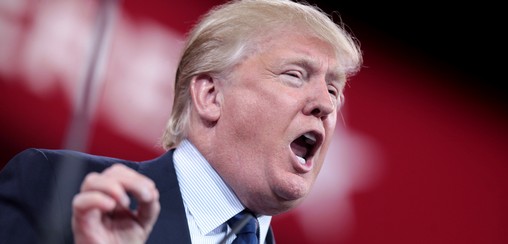 The recent diplomatic developments concerning North Korea, and especially the announcement of a Trump-Kim meeting, have caused much debate among analysts. Many media presented it as a turning point, presenting it as a success of tight sanctions (a discourse also heard at the political level).
The recent diplomatic developments concerning North Korea, and especially the announcement of a Trump-Kim meeting, have caused much debate among analysts. Many media presented it as a turning point, presenting it as a success of tight sanctions (a discourse also heard at the political level). But if we look at the past, we see that Pyongyang has constantly been using its nuclear programme also as a mean to obtain international economic aid in the logic of regime preservation. As such, North Korea's offer to negotiate is consistent with its grand strategy and does not represent any "revolution" of sort. In addition, the upcoming talks [which eventually took place in June 2018] will hardly solve anything, because the geopolitical reality of Korea remains virtually unaltered.
Photo Credits: Gage Skidmore, Flickr, modified.
A ‘Preliminary Agreement’: US, China And Solution To North Korean Nuclear Crisis
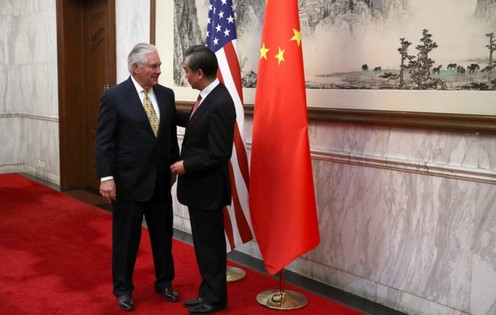 The North Korean nuclear issue remains one of the most delicate on the global scene. Even though the recent diplomatic opening between the US and the DPRK has easened tension to some degree, the problem is far from being definitively solved.
The North Korean nuclear issue remains one of the most delicate on the global scene. Even though the recent diplomatic opening between the US and the DPRK has easened tension to some degree, the problem is far from being definitively solved.In this article I argue that the only way to solve the issue is a coordinated US-PRC action; but this demands a "preliminary agreement" between the two powers that must determine the future geopolitical order in Korea in case the North collapses and the Peninsula is reunited. In particular, this deal must rassure Beijing that reunification will not represent a threat to Chinese national security.
Full article available here on Eurasia Review.
Photo credit: Naples Herald
The Six-Party Talks: Analysis of an International Negotiation
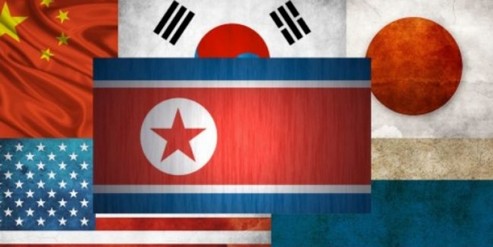 The Six Party Talks (SPT) were a series of international summits taking place between 2003 and 2009 with the aim of solving the North Korean nuclear issue. They took theat name because they involved the six main actors in the region: the United States, North Korea, South Korea, Japan, China and Russia. The SPT ultimately resulted in a failure, as Pyongyang kept on developing nuclear weapons and ultimately obtained them.
The Six Party Talks (SPT) were a series of international summits taking place between 2003 and 2009 with the aim of solving the North Korean nuclear issue. They took theat name because they involved the six main actors in the region: the United States, North Korea, South Korea, Japan, China and Russia. The SPT ultimately resulted in a failure, as Pyongyang kept on developing nuclear weapons and ultimately obtained them.In this paper, I apply five different analytical approaches to examine the SPT (focusing on the US and the DPRK): Behavioral (it focuses on personality, in this case George W. Bush and Kim Jong-il); Cultural (it assesses the influence of culture-specific factors; like North Korea's Juche ideology and the way of thinking of American Neocons); Processual (it emphasizes how negotiations are organized and how they take place); Structural (it concentrates on the existing balance of power, in this case the particular military equilibrium in Korea where the US-RoK military superiority is balanced by the DPRK's ability to rapidly inflict massive damage to the South led to a stall in the negotiations as no side could force its demands on the other); Strategic (it applies models derived from the game theory; the US and the DPRK, in a typical case of prisoner's dilemma, both acted to ensure their own security thus leading to a situation where both were unsafe).
I conclude arguing that the Structural and Strategic approaches best explain the failure of the SPT.
Note: I wrote this paper as a task for the course in International Negotiations at Université Catholique de Louvain during my Master's program. This version is sligthly different from the one I submitted back then: I added pictures and I made some minor corrections to the text, but it remains almost identical.
